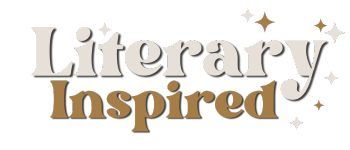Navigating the world of book blogging can be a thrilling journey, especially when you’re based in a unique literary landscape like South Africa. One of the most enticing aspects of this venture is the opportunity to get your hands on free books for review. Yes, you read that right—free books! Platforms like NetGalley and BookSirens have made this a reality, and today, I’m diving deep into how you can leverage these services to not only enrich your reading list but also elevate your blog’s content.
NetGalley: A Digital Treasure Trove for Book Bloggers
NetGalley is more than just a digital platform; it’s a community where book bloggers, librarians, and reviewers converge to explore advance reading copies (ARCs) of upcoming titles. The platform serves as a bridge between publishers and authors who are keen to generate pre-release buzz and reviewers who are eager to discover new reads. The library is impressively diverse, covering a multitude of genres, from romance and mystery to non-fiction and young adult.
Getting started with NetGalley is straightforward. You’ll need to create an account and fill in details about your blog and its audience. Once approved, the world—or rather, the library—is your oyster. You can request ARCs and share your reviews on multiple platforms, including your blog and social media channels. NetGalley isn’t just about free books; it’s a platform that allows you to network with publishers and authors, thereby increasing your blog’s visibility.
BookSirens: Where Quality Meets Quantity
While NetGalley primarily focuses on digital copies, BookSirens takes it a step further by offering both digital and physical copies for review. The platform has a unique rating system for reviewers, which is a game-changer. This system helps authors and publishers identify reviewers who offer valuable, in-depth insights, making it an ideal platform for those looking to form long-term relationships in the publishing world.
Other Platforms Worth Exploring
If you’re looking to diversify your sources, platforms like Edelweiss+, Bookfunnel, and Voracious Readers Only are also worth your time. Each comes with its own set of rules and benefits, so make sure to read the terms and conditions carefully.
FAQs to Guide Your Journey
How do people get free books to review?
Platforms like NetGalley and BookSirens are popular choices. After creating an account and getting approved, you can request free books in exchange for honest reviews.
How do I get free books from publishers to review?
Building a reputable blog and networking with publishers can open doors to direct collaborations, where publishers send you books for review without going through third-party platforms.
How do you become a paid book reviewer?
While most platforms offer books in exchange for reviews, some also offer monetary compensation. Websites like OnlineBookClub and Publishers Weekly pay for professional reviews.
Is there a way to get books for free?
Absolutely! Apart from review platforms, you can also explore options like public domain websites, local libraries, and book swaps.
Is there an app to review books?
Goodreads is a popular app where you can post book reviews, although it doesn’t offer free books for review. For that, you’ll need to stick with specialized platforms like NetGalley and BookSirens.
In the realm of book blogging, especially in a vibrant community like South Africa, platforms like NetGalley and BookSirens are invaluable resources. They offer a plethora of books across genres, opportunities to network with industry professionals, and the added bonus of elevating your blog’s content. So go ahead, explore these platforms, and let the reading adventure begin!
The Importance of Crafting Quality Reviews
While the primary allure of platforms like NetGalley and BookSirens is the free books, it’s crucial to remember the reciprocal nature of this relationship. Publishers and authors are offering their work for free in the hopes of receiving insightful and honest reviews. Therefore, the quality of your reviews is paramount. Not only do well-crafted reviews increase your credibility on these platforms, but they also enhance your blog’s content. A good review should be balanced, providing both the positives and negatives of the book. It should offer something valuable to your readers, helping them decide whether the book is worth their time.
Leveraging Social Media for Greater Impact
Your blog is just one channel where you can share your reviews. Social media platforms like Twitter, Instagram, and even Pinterest can serve as additional outlets for your thoughts. Utilizing hashtags relevant to the book, author, or genre can significantly extend the reach of your posts. For instance, if you’re reviewing a romance novel, hashtags like #RomanceReaders, #BookReview, and #NewReleases can be beneficial. Emojis can also add a fun element to your posts, making them more engaging.
The Ethics of Book Reviewing
It’s essential to maintain ethical standards when reviewing books, especially those you’ve received for free. Always disclose that you’ve received a free copy for review purposes, either from the platform or directly from the publisher or author. Transparency is key in building trust with your audience and maintaining good relationships within the publishing industry.
FAQs: A Deeper Dive
Is there an age requirement for these platforms?
Most platforms require users to be at least 18 years old or have parental consent to participate.
Can I review books if my blog is new?
Absolutely! While having an established blog can help, many platforms welcome new bloggers. The key is to write quality reviews and have a genuine passion for reading.
What happens if I can’t finish a book?
Life happens, and sometimes you can’t complete a book. Most platforms appreciate honesty and would rather you provide feedback explaining why the book wasn’t for you.
By focusing on the quality of your reviews, leveraging social media, and adhering to ethical standards, you can make the most out of platforms like NetGalley and BookSirens. These additional layers not only add depth to your book blogging experience but also offer more value to your readers and the authors whose works you’re reviewing. With these insights, you’re well-equipped to navigate the rewarding world of book blogging, particularly in a diverse literary landscape like South Africa.





